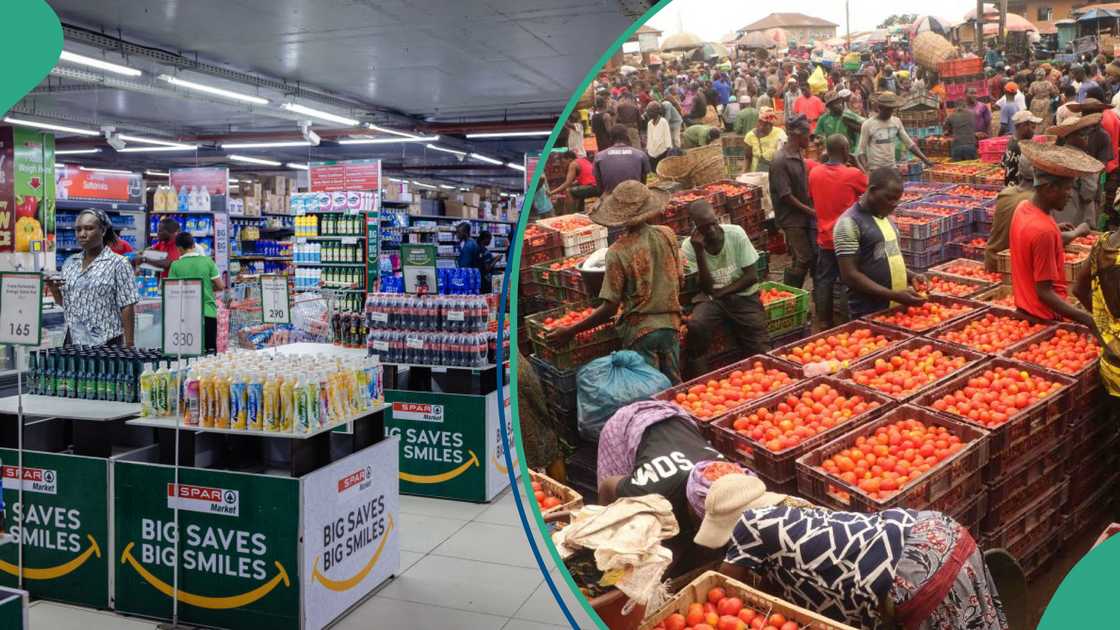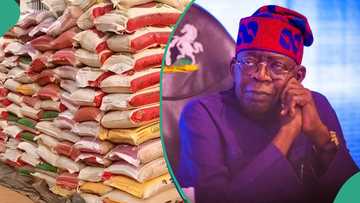Nigerians Disappointed as FG’s Duty-Free Import on Food Items Fails to Start, Reasons Emerge
- The 150-day import duty-free window provided by the Nigerian government has failed to take off
- The policy, which was supposed to crash food prices, is being delayed by the Ministry of Finance two months after the announcement
- The Nigeria Customs Service said that the Finance Ministry is yet to release the names of participating companies
Legit.ng’s Pascal Oparada has reported on tech, energy, stocks, investment and the economy for over a decade.
The Minister of Finance and the Nigeria Customs Service’s red tape is delaying the take of the zero food import two months after the announcement.
Legit.ng earlier reported that President Bola Tinubu approved the policy to implement zero per cent duty and value-added tax exemption on selected food items, slated to run between July and December 21, 2024.

Source: Getty Images
Affected food items
However, the policy failed to begin, disappointing the hopes of millions of Nigerians who expected immediate takeoff.
According to the guidelines, husked brown rice, grain sorghum, millet, maise, wheat, and beans are eligible for the policy.
Findings reveal that the delay in the implementation takeoff was due to the Ministry of Finance’s failure to publish the list of importers eligible to participate in the process as stated in the guidelines.
Additionally, Nigeria Customs is yet to receive the list of participating companies.
Customs blames Finance Ministry
BusinessDay reports that Abdullahi Maiwada, the Customs national public relations officer, said that the implementation will start immediately after the guidelines containing the Finance Ministry's approval reach the agency.
The guidelines disclosed that the Ministry of Finance is supposed to provide the Customs with the list of importers eligible to benefit from the waiver.

Read also
16 major projects, bills approved at FEC meeting to address nat'l challenges, details emerge
Regarding the implementation status, the Customs spokesman said the Federal Ministry of Finance would be in the appropriate position to clarify because Customs is responsible for implementing the policy from the Federal Ministry of Finance.
Nigerians have been hit by food inflation due to insecurity, logistics costs and inputs.
Food inflation slows
The National Bureau of Statistics (NBS) said food inflation thawed in August to 37.52% from 39.53% in July.
NBS, however, said the 37.52% shows a significant decline from 29.34 recorded in the same period in 2023.
The bureaucracy, especially from the Ministry of Finance, has killed importers' morale and Nigerians who now see it as a missed opportunity.
Per the guideline, the finance ministry will provide the Customs with a list of importers and their quotas to allow for the import of essential food items.
It also says that such importers must be firms registered in Nigeria that have been operating for five years. They must have provided annual returns and financials, paid taxes, and statutory payroll obligations for the past five years.

Read also
"No single bag here": Frustration grows as Tinubu’s N40K rice remains out of reach of Nigerians
Rice sellers announce changes in price
Legit.ng earlier reported that the price of parboiled rice dropped for the first time this year in April, which relieved families and reduced living standards across the country.
A market survey across Lagos and significant cities shows that in four months, the price of a 50kg bag of rice has decreased by 20%, from an average of N90,000 to N72,000.
Experts have attributed the staple's price drop to the rise in the value of the naira against the US dollar.
PAY ATTENTION: Сheck out news that is picked exactly for YOU ➡️ find the “Recommended for you” block on the home page and enjoy!
Source: Legit.ng



